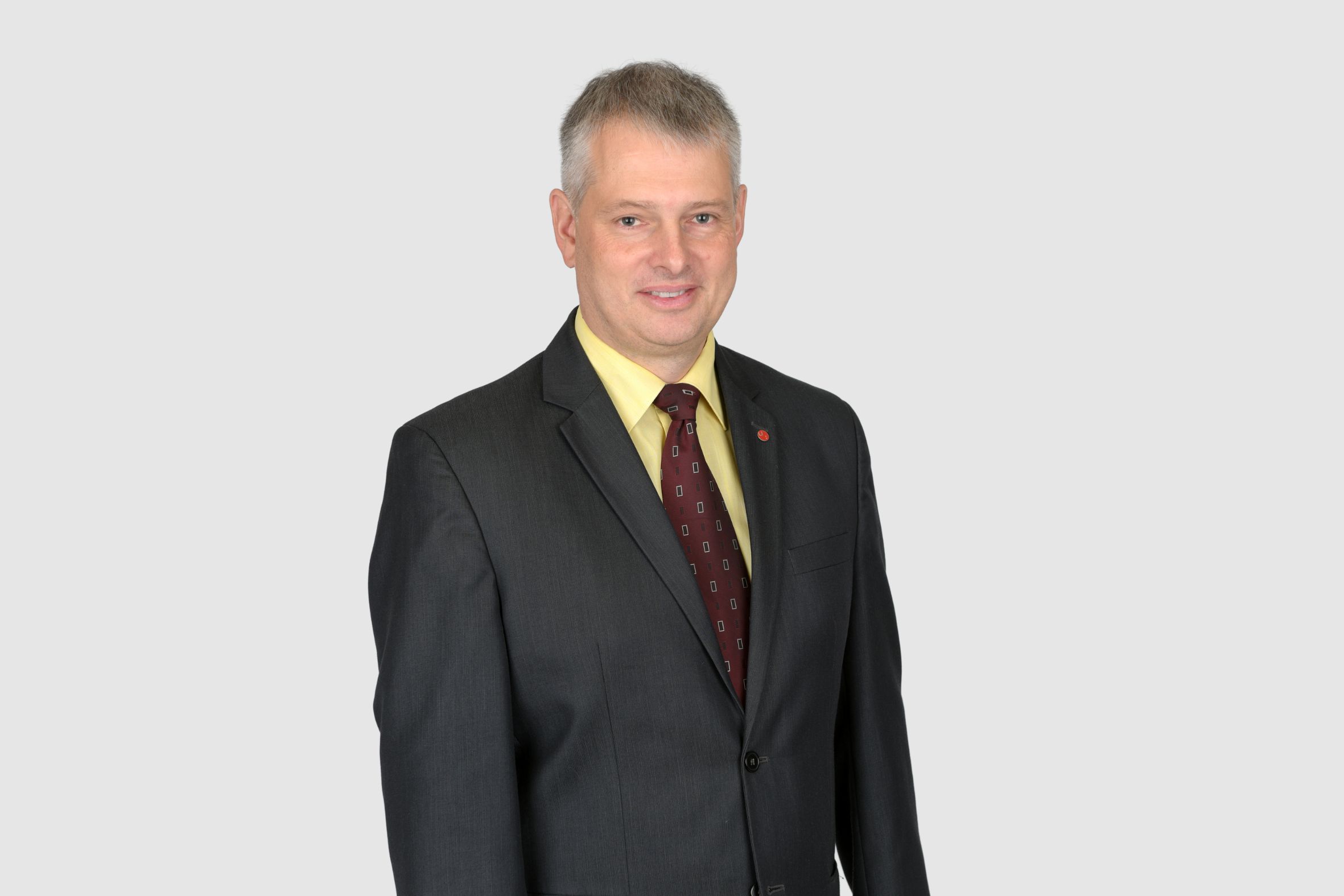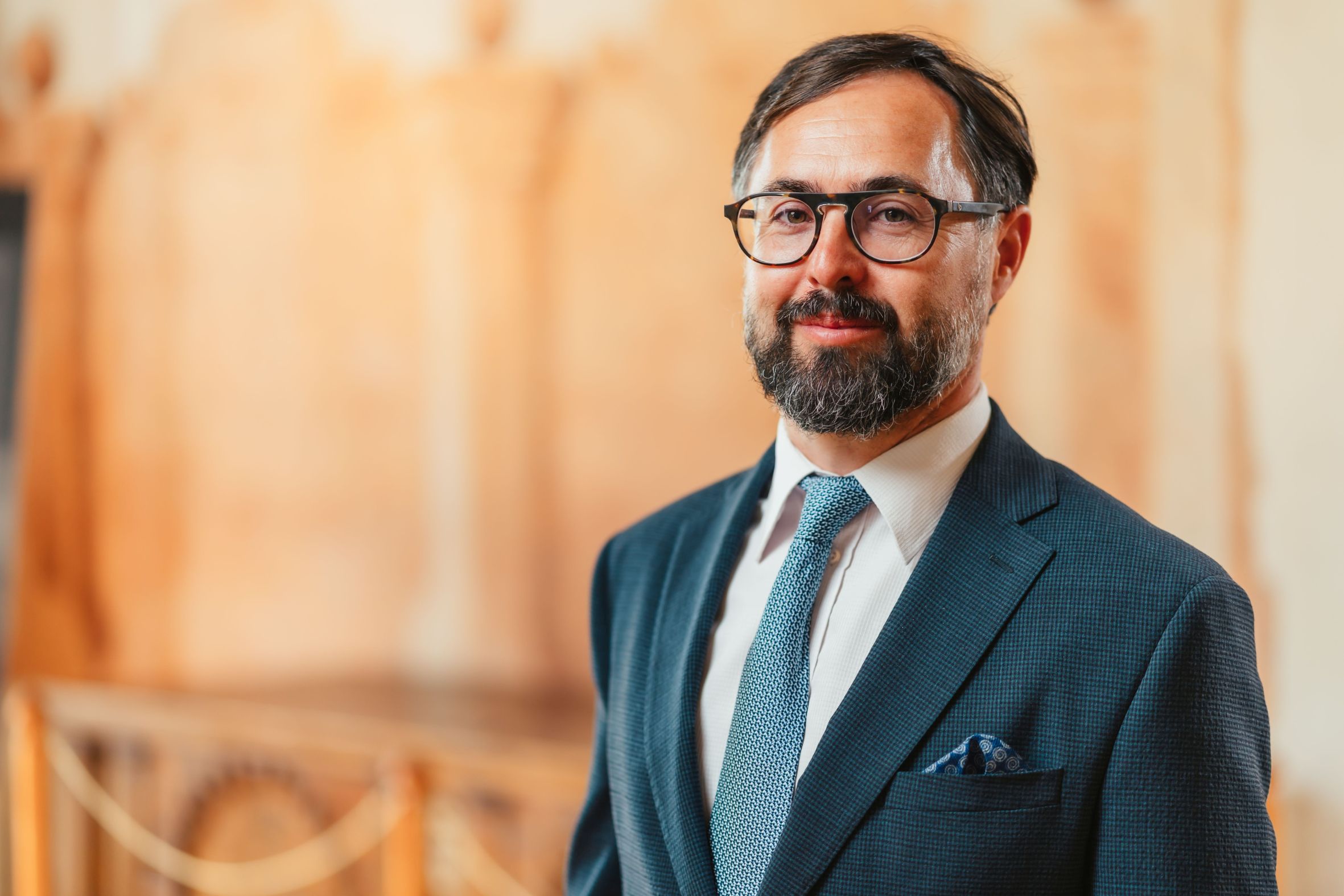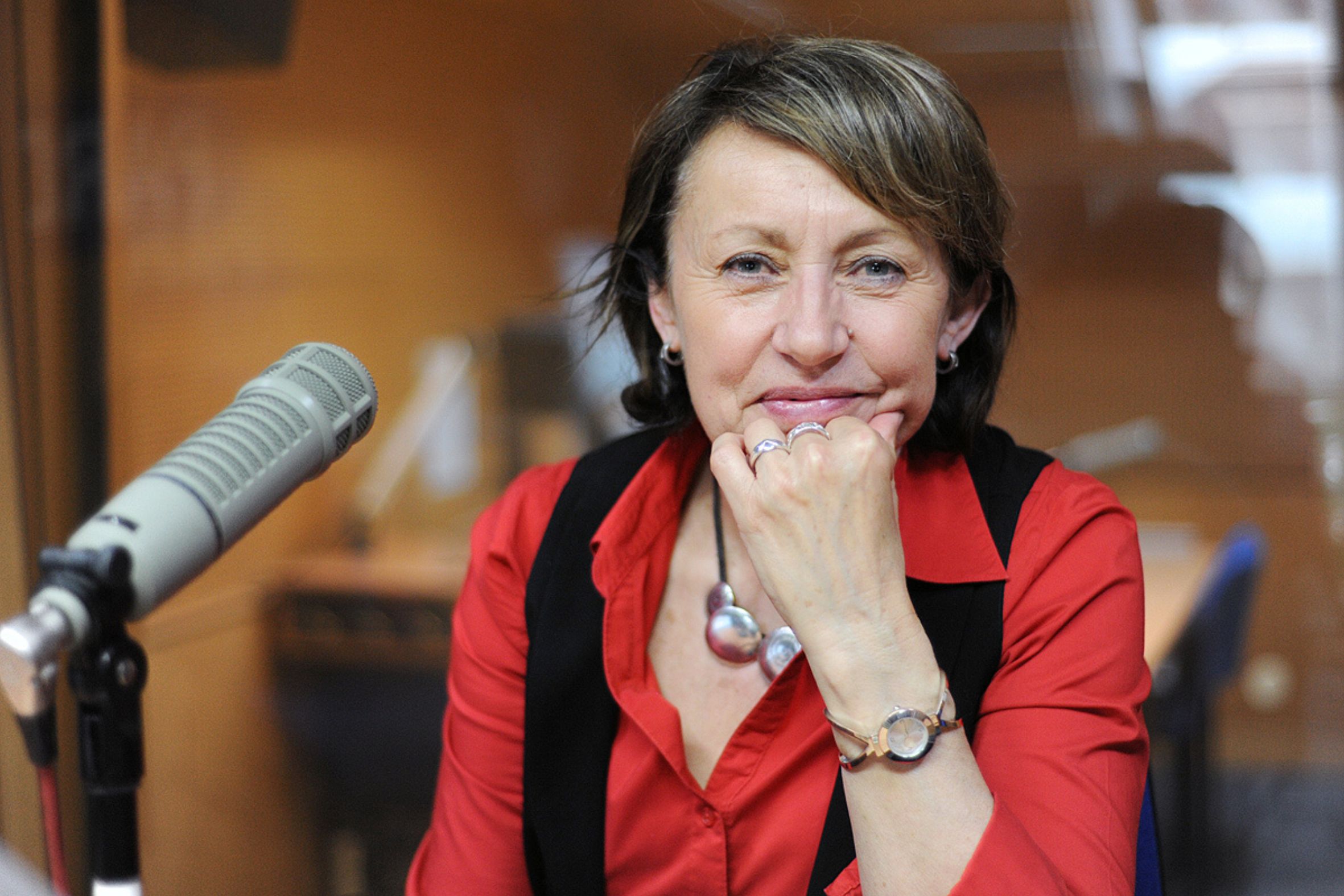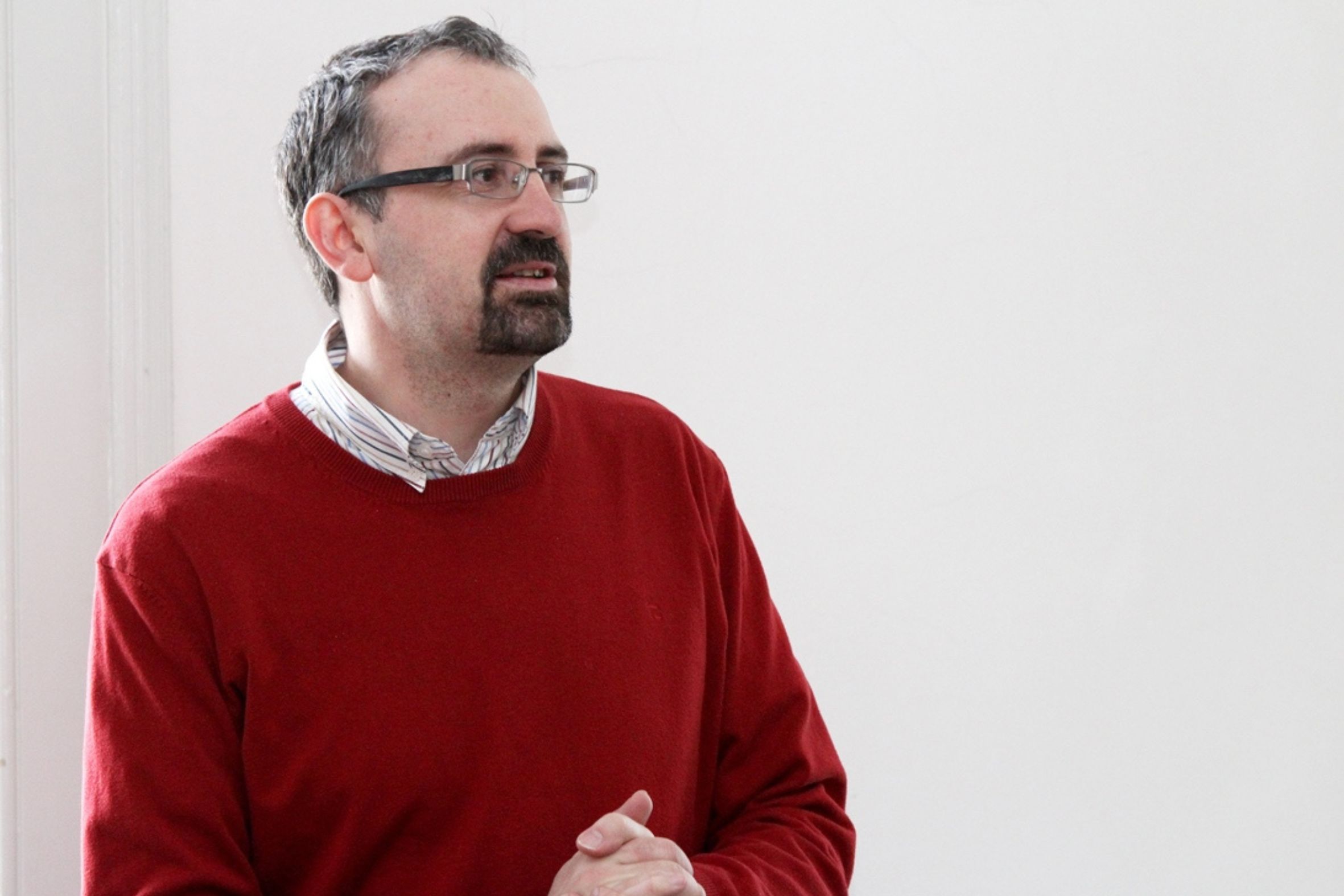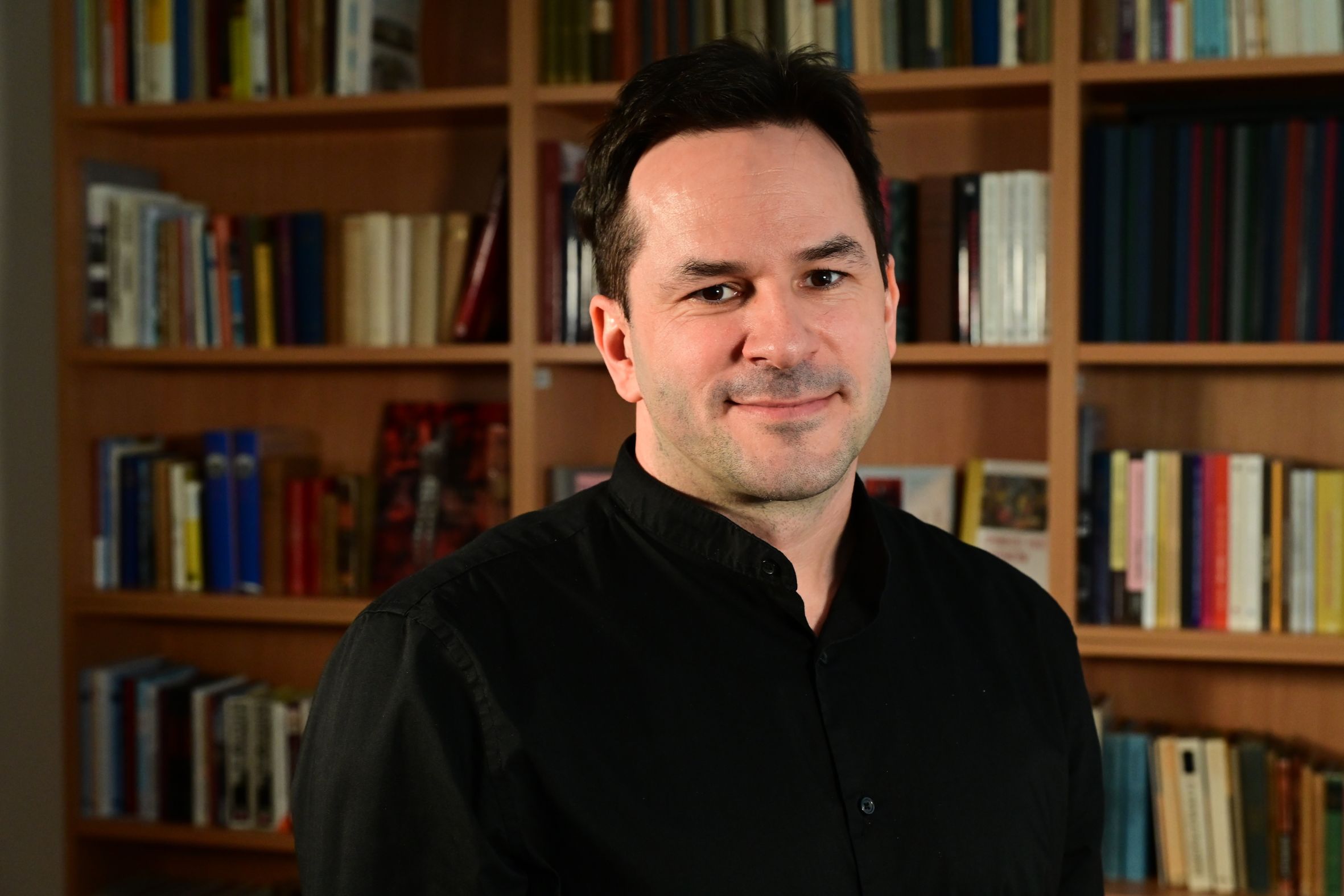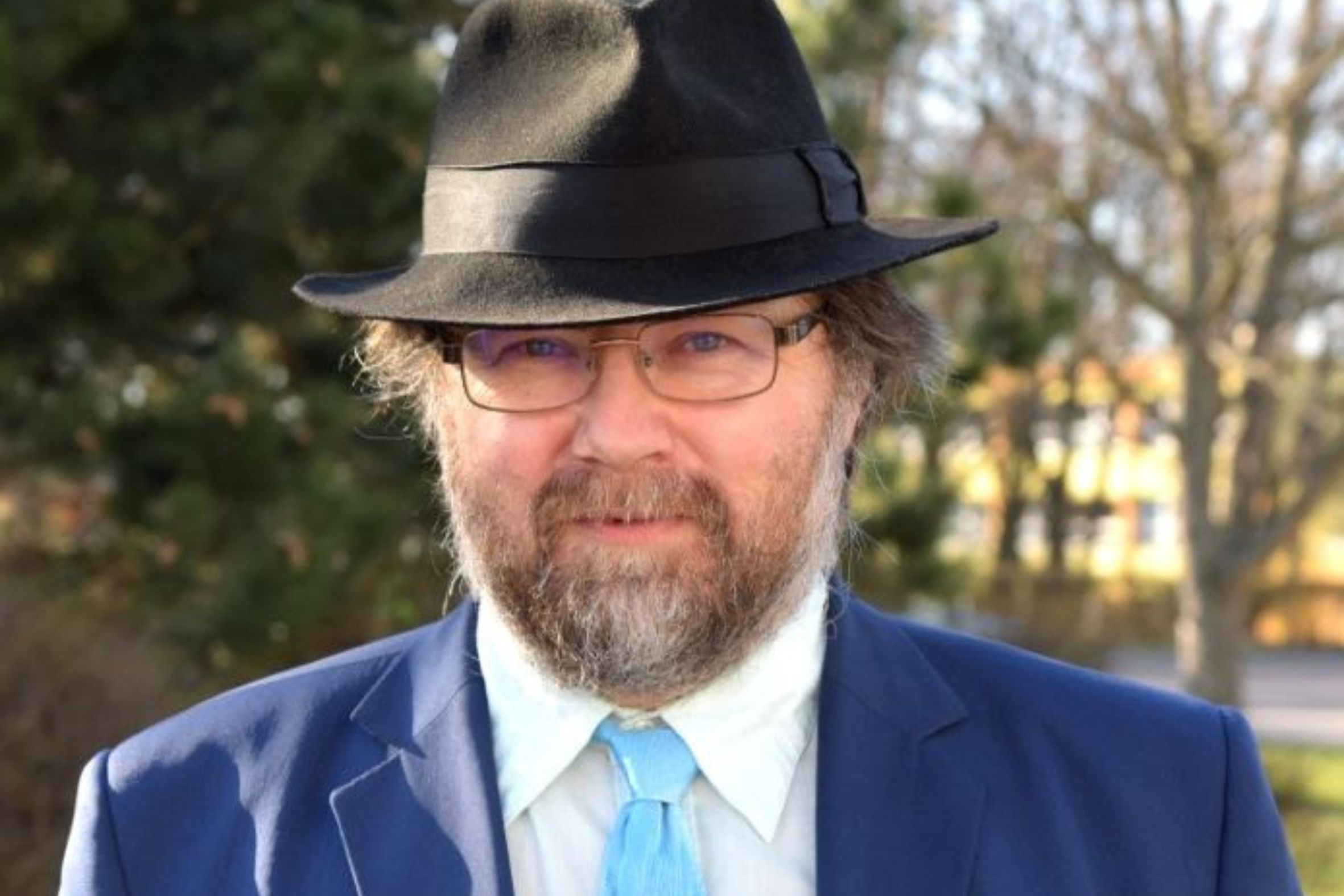Do you want to apply for a Ph.D. in history in Central Europe?
The Institute of History of the Faculty of Arts of the University of Pardubice is an excellent place for professional development, not only because of its professional staff and rich international contacts, but also because of the university’s own facilities, which include a library rich in resources and with a special collection donated by the eminent Austrian historian Karl Vocelka. Another advantage is the Institute’s location between Prague, Brno, and Wroclaw, and within a wider radius of Dresden, Berlin, Bratislava, and Vienna, which enables easy access to these cities for research purposes. At the same moment the Institute is a friendly place that respects gender, national, and social diversity.
What doctoral study topics do we offer in particular?
New Diplomatic History
New Diplomatic History
The Institute of History has established itself as a centre of excellence in historical studies and a prominent place for New Diplomatic History research. In this sphere recent years have witnessed a deepening of its cooperation with historical institutes in the Czech Republic, Europe, and the USA and several prominent scholars analysing the history of diplomacy and international relations within the broader context of social, economic, cultural, legal, and gender history from the early modern period to the present. These scholars, with their international experience and publications on the world stage, offer expert guidance to PhD students that transcends the narrow horizon of the Czech academic environment and enables the development of knowledge and skills essential for success in a highly competitive international arena.
Leading scholars
Prof. Dr. Miroslav Šedivý
Doc. Dr. Jiří Kubeš
Doc. Dr. Pavel Marek
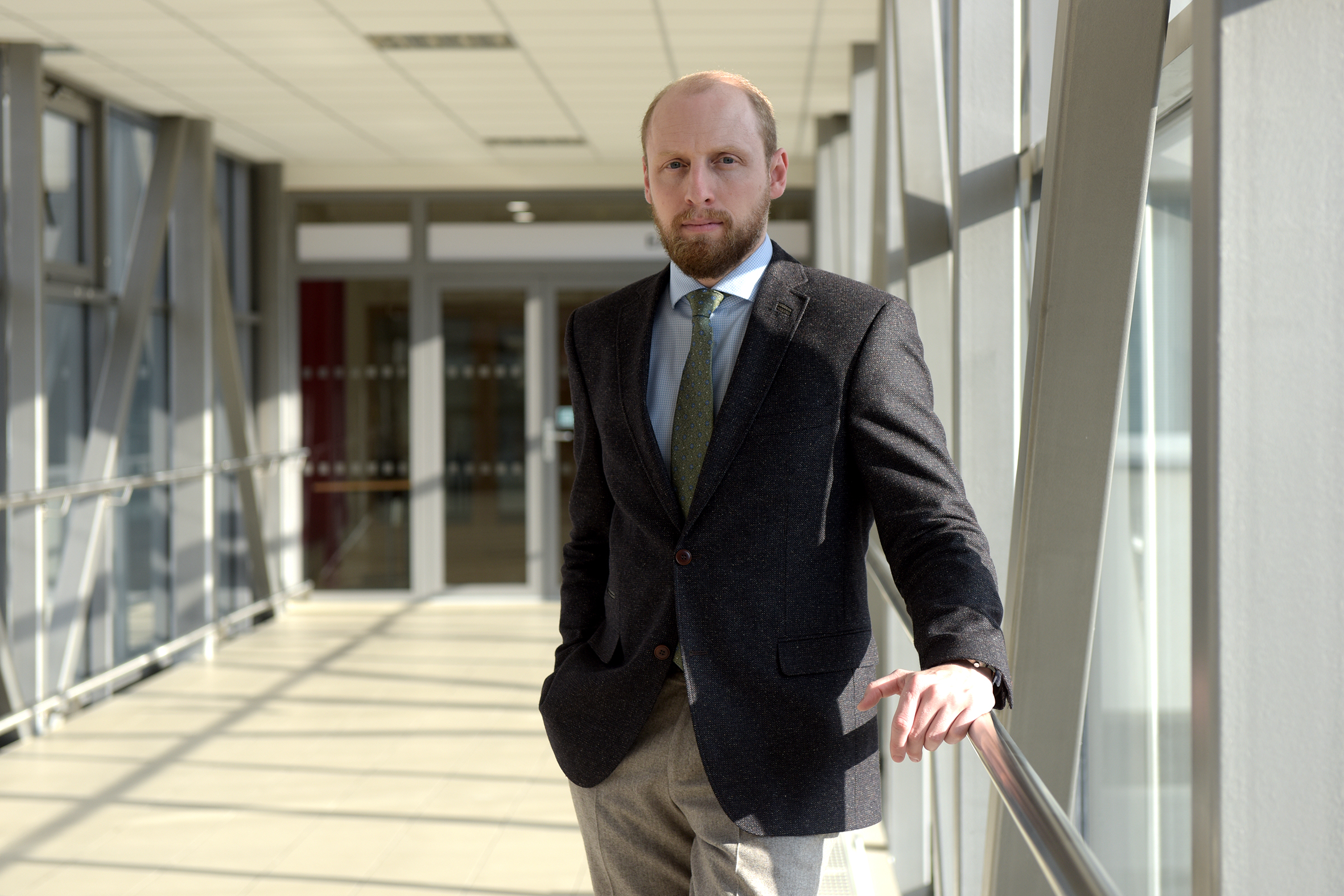
Miroslav Šedivý is a professor of Modern European and World History, dealing primarily with the history of Austria, Germany, Italy, the Mediterranean, the Near East, and the USA, spanning the period from the late 18th to the early 20th century.
He studied at the University of Vienna, Ludwig-Maximilian-University in Munich, and the University of Newcastle upon Tyne prior to completing his PhD at Charles University in Prague in 2008.
He has been a guest lecturer or researcher at the Universities of Delaware, Hildesheim, Klagenfurt, Lodz, Vienna, Prague (Charles University), Berlin (Humboldt-Universität), and Moscow (Russian State University for the Humanities). He has already published a trilogy on the functioning of the system of post-Napoleonic states in the Near East (Metternich, the Great Powers and the Eastern Question, Pilsen 2013), Central Europe (Crisis among the Great Powers: The Concert of Europe and the Eastern Question, London–New York 2017), and Italy (The Decline of the Congress System: Metternich, Italy and European Diplomacy, London–New York 2018). His most recent book, Si vis pacem, para bellum: The Italian Response to International Insecurity 1830–1848, was published by the publishing house of the Austrian Academy of Science in 2021.
He is about to publish a fifth English monograph, entitled The Victory of Realism: The German Quest for International Security 1839–1853 through Ferdinand Schöningh/Brill during 2024. He is the author of three scholarly monographs in Czech on German and Mediterranean history and 100 articles in English, German, and Czech published in scholarly journals and memorial volumes, for example in the English Historical Review, European History Quarterly, European Review of History, Diplomacy & Statecraft, International History Review, Central European History, Austrian History Yearbook, German History, Slavonic & East European Review, Journal of Modern Italian Studies, Mediterranean Historical Review, British Journal of Middle Eastern Studies, and Middle Eastern Studies.
Jiří Kubeš is an assistant professor dealing with the early modern history of the Habsburg Monarchy, especially with its court society and nobility and their lifestyle. He studied at the University of South Bohemia in České Budějovice. He habilitated in 2011 at the University of Pardubice.
He has participated with contributions in nearly 20 international conferences all over Europe. He has edited the travel diary of Christoph Wenzel von Nostitz from his journey to the Netherlands (Kryštof Václav z Nostic, Deník z cesty do Nizozemí, Prague 2004) and published three other books: the first on the election and coronation of Leopold I (Trnitá cesta Leopolda I. za římskou korunou (1657–1658). Volby a korunovace ve Svaté říši římské v raném novověku, Budweis 2009); the second on the Grand Tours of the Czech and Austrian nobility (Náročné dospívání urozených. Kavalírské cesty české a rakouské šlechty (1620–1750), Pelhřimov 2013), and the third on nobles in the diplomatic service of the Austrian Habsburgs (V zastoupení císaře. Česká a moravská aristokracie v habsburské diplomacii 1640–1740, Prague 2018).
He is the author of nearly 60 articles in English, German, Polish, and Czech published in edited volumes or scholarly journals, for example The Court Historian, Legatio: The Journal for Renaissance and Early Modern Diplomatic Studies, Bohemia, Frühneuzeit-Info, Mitteilungen des Instituts für Österreichische Geschichtsforschung, Salzburg Archiv, Kronika zamkowa: Roczniki, Res Gestae: Czasopismo historyczne, Theatrum historiae, Folia Historica Bohemica, and Český časopis historický.
Pavel Marek is the director of the Institute of History at the Faculty of Arts at the University of Pardubice. His research concentrates on Spanish diplomacy at the Imperial Court, the aristocratic relations between both Habsburg empires, and the role of women in shaping political and diplomatic outcomes across early modern Europe.
He studied at the University of South Bohemia in České Budějovice. He habilitated in 2014 at Charles University in Prague.
He has supervised a large number of qualifying theses and lectured at universities in Spain, Italy, and Mexico. He has published La embajada española en la corte imperial 1558–1641: Figuras de los embajadores y estrategias clientelares (Prague 2013), Bohemia hispánica: Fondos españoles de los siglos XV a XVII en bibliotecas checas (London–Barcelona 2013), Pernštejnské ženy: Marie Manrique de Lara a její dcery ve službách habsburské dynastie (Prague 2018), and Gesandte und Klienten: Päpstliche und spanische Diplomaten im Umfeld von Kaiser Rudolf II. (Berlin–Boston 2020).
He has also published about a hundred articles in Spanish, German, English, Italian, and Czech published in scholarly journals and memorial volumes, for example in Manuscrits: Revista d’Història Moderna, Mitteilungen des Instituts für Österreichische Geschichtsforschung, Český časopis historický, and Studia historica: Historia moderna.
Cultural History of Central and Eastern Europe
The Institute of History is well known as a research hub for cultural history, particularly gender history, spatial studies, the social history of medicine, and non-anthropocentric history, reflecting the new challenges established in the humanities by the new materialism paradigm. We encourage our PhD students to conduct innovative interdisciplinary research on contemporary social and cultural issues and the search for their historical roots. As every research project should transcend the limits of the geographical boundaries of Central and Eastern Europe, we ensure the transnational aspect of our research through close cooperation with all the scientific institutions in Western and Central Europe that focus on research in social and cultural history. Thus, we are well-equipped to supervise social, political, and cultural research projects covering the broad spectrum of analysis based on innovative methodological and conceptual approaches to the history of Central and Eastern Europe with an emphasis on contemporary trends in historiography, the humanities, and the social sciences.
Leading scholars:
Prof. Dr. Milena Lenderová
Prof. Dr. Martin Čapský
Dr. Vladan Hanulík
Milena Lenderová is a professor dealing with a broadly conceived cultural history of the 19th century, including the history of Czech-French cultural relations, the history of women, history of childhood, and history of travel.
She is the author or co-author of 20 books and of nearly 200 articles published in French, English, German, Polish, and Czech (see Milena Lenderová Univerzita Pardubice (upce.cz) and International Directory of Eighteenth-century Studies/Repertoire international des dix-huitiémistes, Voltaire Foundation, Oxford 2003, p. 216). She completed a fellowship at the Max Planck Institute in Göttingen and has taught at the universities of Montpellier, Bordeaux, Paris Sorbonne I, Paris Sorbonne III, and Paris Sorbonne IV. She is a member of about 15 scientific boards and editorial boards of scientific journals (among others Histoire, Économie, Société: La revue d'histoire économique et sociale du XVIe au XXe siècle).
Milena Lenderová has received several awards for her scientific and publishing activities, e.g. Chevalier des Palmes Académiques (République française, 2007);,Award of the Ministry of Education for Research-Development (CZ, 2014), and Award of the President of the Czech senate (CZ, 2016). Milena Lenderová adores horse riding.
Martin Čapský is a professor whose research is concentrated on Late Medieval History, Political Communication, the Bohemian Reformation, Charismatic Preachers, Material Culture, Identity Formation, Medieval Silesia and Central Europe, Urban History, and Violence and Concord in Medieval Culture.
He studied History and Museology at the Silesian University in Opava. He defended his dissertation and habilitation thesis at Masaryk University in Brno. He is the author of several monographs (Vévoda Přemek Opavský (1366–1433): Ve službách posledních Lucemburků; Zrození země: Komunikující společenství pozdně středověkého Slezka; Město pod vládou kazatelů: Charizmatičtí náboženští vůdci ve střetu s městskou radou v pozdně středověkých českých korunních zemích) and the editor or co-editor of edited volumes and collections (Processes of Cultural Exchange in Central Europe, 1200–1800; Hejtmanská správa ve vedlejších zemích Koruny české; Komunikace ve středověkých městech; Spolu i vedle sebe: České stavy a stavy zemí české koruny na prahu raného novověku).
He has completed study and research stays at foreign universities and scientific institutions (Uniwersytet Wrocławski; Uniwersytet Jagielloński; Herder-Institut in Marburg; the University of Cambridge). He has successfully completed three-year research grants and his research has been supported by the Muzeum Historii Polski and Fundusz Stypendialny im. Królowej Jadwigi foundations. He likes to ride a scooter.
Vladan Hanulík is a lecturer and researcher whose research activities follow Central European cultural history with a focus on the social history of medicine, the role of expert knowledge in modern society, the history of the body, and the history of spa and leisure activities within the scope of the new materialism methodology.
He studied at the University of Olomouc and the University of Pardubice. He was a guest researcher at Birkbeck College, University of London, the University of Vienna, and Maria-Curie Sklodowska University in Lublin.
He has published a monograph reflecting the history of non-conventional medical practices in the 19th century, Historie nekonvenčních léčebných praktik v době profesionalizace medicíny: vznik a vývoj lázní Gräfenberg v první polovině 19. století (Pardubice 2017) and contributed significantly to three joint monographs: Dějiny těla: prameny, koncepty, historiografie (Červený Kostelec 2013); Tělo mezi medicínou a disciplínou: Proměny lékařského obrazu a ideálu lidského těla a tělesnosti v dlouhém 19. století (Prague 2014), and Ženy s kufříkem a nadějí: Porodní báby a asistentky v českých zemích od poloviny 19. do poloviny 20. století (Prague 2019), and an edited volume of sources, Porodila štastně děvče: Porodní deníky čtyř porodních babiček z 19. století (Pardubice 2017).
He is about to publish the edited volume Physicians in a Transforming Europe, 1770s–1950s: Between the State and the Market through Routledge during 2024 and a monograph, Dreaming of Panaceum: the Cold Water Bath Cure Movement in the 19th Century, through the Brill publishing house. He is the author of articles in German, English, and Czech published in scholarly journals and memorial volumes, for example, in Dynamis, Acta Hispanica ad Medicinae Scientiatumque Historiam Illustrandam and Dějiny – teorie – kritika. He likes ultra trail running.
Modern Europe (15th–18th Centuries)
Economic History of Late Medieval and Early Modern Europe (15th–18th Centuries)
The Institute of History is one of the few departments that systematically develops research on the economic history of the late Middle Ages and early modern period. The focus of research interest is the region of Central Europe, but with a significant overlap with other parts of the world, which is, of course, related to the global nature of the trade in precious metals at the time. The basic source research is not limited only to original archival sources (mainly accounting documentation, property records at the level of all social classes, the economy of towns, and noble estates, but also serfs), but also deals with material sources (the physical form of money, coin hoards, the history of monetary development). We consider a good knowledge of economic history to be the basis of all further historical research, since without an economic context it is difficult to interpret social, cultural, political, or diplomatic history, as well as the causes and consequences of wars and confessional conflicts. The research team, which includes PhD students, regularly presents the results of its research at major congresses and conferences, including the World Economic History Congress, World Numismatic Congress, and Numismatica Centroeuropaea, and in national and international scientific journals.
Leading scholar
Prof. Dr. Petr Vorel
Petr Vorel is a professor of early modern history who has been working for almost forty years, mainly on the history of Central Europe, the economic history of the early modern period, and the history of monetary development.
He is the author of around forty monographs and about two hundred articles in English, German, Italian, Polish, and Czech published in scholarly journals and memorial volumes. In the last decade his research has focused on the late medieval and early modern history of the Holy Roman Empire and on the financial and monetary crisis of Central Europe at the beginning of the 17th century.
His major source articles and books are published mainly in Czech; however, some of his more important works have already been made available in world languages. See, for example: From Medieval Multinational Empire to Early Modern National States (The Holy Roman Empire and Central Europe during the 14th–16th Centuries), in: Český časopis historický 121, 2023, 2, pp. 365–388; The function of the thaler in determining the exchange rates of European currencies in the second half of the 16th century, in: Wiadomośći Numismatyczne 66, 2022, 210, pp. 277–298; Economic and political consequences of limiting of the statutory maximum interest rate in Central Europe from 10% to 6% since 1543, in: A History of the Credit Market in Central Europe: The Middle Ages and Early Modern Period (London–New York 2021), pp. 177–187; Emperor´s Insolvency and the Economic causes of Beginning of the "Bohemian War" in 1618, in: Comenius: Journal of Euro-American Civilization 2021, 2, pp. 217–226; European merchant trading firms and the export of the precious metals from the Kingdom of Bohemia during the 16th century, in: Cheryl Susan McWatters (ed.), Mercantilism, Account Keeping and the Periphery-Core Relationship (London–New York 2019), pp. 49–60; Funding of the Papal Armyʼs Campaign to Germany during the Schmalkaldic War (Edition of the original accounting documentation “Conto de la Guerra de Allemagna” kept by the Popeʼs accountant Peter John Aleotti from 22 June 1546 to 2 September 1547), in: Theatrum Historiae 21, 2017, pp. 9–96; From the Silver Czech Tolar to a Worldwide Dollar (The Birth of the Dollar and its Journey of Monetary Circulation in Europe and the World from the 16th to the 20th Century) (New York 2013); La storia della piastra dʼargento di Urbano VIII (L’attività della zecca romana sul finire del pontificato di Urbano VIII e il catalogo dettagliato delle piastre d’argento pontificie degli anni 1634–1644) (Rome 2013); The War of the Princes: The Bohemian Lands and the Holy Roman Empire 1546–1555 (Santa Helena 2015).

